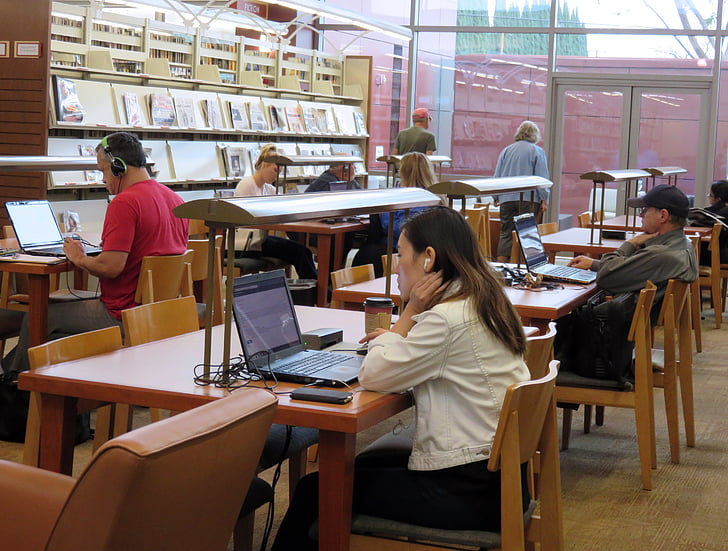学习的三个阶段可以帮助你有效地学习
学习的三个阶段可以帮助你有效地学习
We’re learning every day of our life from the moment we are born. Without realizing it, we’ve been employing at least one of the 3 stages of learning to gain knowledge actually: cognitive learning, associative learning or autonomous learning.
从我们出生的那一刻起,我们每天都在学习。在没有意识到的情况下,我们实际上已经至少使用了三个学习阶段中的一个来获得知识:认知学习、联想学习或自主学习。
Each of these stages of learning is very different from the other. These stages can be taken progressively, where one stage comes before the other, or individually where each is a complete learning methodology on its own. In any situation that involves learning opportunities, a person looking to acquire knowledge makes a subconscious decision to gain it a certain way, based on any one or a combination of the three stages mentioned above.
每个阶段的学习都是非常不同的。这些阶段可以循序渐进地进行,一个阶段先于另一个阶段,也可以单独进行,每个阶段都是一个完整的学习方法。在任何涉及学习机会的情况下,寻求获得知识的人都会下意识地决定以某种方式获得知识,这种方式是基于上述三个阶段中的任何一个阶段,或者是上述三个阶段的组合。
If you want to learn faster, it is important that you know which stage of learning you’re currently at and what steps to take next to advance to the next stage of learning.
如果你想学得更快,重要的是你要知道你现在处于学习的哪个阶段,下一步要采取什么步骤才能进入下一个学习阶段。

Stage 1: Cognitive Learning
第一阶段:认知学习
Cognitive learning works towards developing an overall understanding of skills. It engages students in the learning process, getting them to use their brain more effectively to make new connections from knowledge already stored in their mind. It improves comprehension, helps develop problem solving skills and promotes long-term learning.
认知学习有助于培养对技能的全面理解。它使学生参与到学习过程中,使他们更有效地使用他们的大脑,从他们头脑中已经储存的知识建立新的联系。它可以提高理解能力,帮助开发解决问题的技能,并促进长期学习。
This can also be considered the first stage of learning where the learner observes and listens and makes connections based on knowledge he has already gained. This knowledge could have been acquired through conscious or subconscious learning.
这也可以被认为是学习的第一个阶段,学习者在这个阶段观察和倾听,并根据他已经获得的知识建立联系。这种知识可以通过有意识或潜意识的学习获得。
Knowledge in the cognitive stage can be acquired through any of the following methods:
认知阶段的知识可以通过以下任何一种方法获得:
Implicit Learning
内隐学习
This type of learning is retained well over years and is resistant to psychological changes in people. It is better for skill reproduction and is independent of age and IQ.
这种学习方式可以保留多年,并且可以抵抗人们心理上的变化。这是更好的技能繁殖,是独立的年龄和智商。
Explicit Learning
明确的学习
It happens when a person actively seeks out opportunities to learn. This may or may not involve a teacher. This also requires verbal and visual cues.
当一个人积极地寻找学习的机会时,它就会发生。这可能涉及老师,也可能不涉及老师。这也需要语言和视觉上的暗示。
Collaborative Learning
协作学习
It is the type of learning most commonly used in educational institutes. It involves varying degrees of collaboration between the learner, the instructor and other students.
它是教育机构最常用的一种学习方式。它涉及到学习者、教师和其他学生之间不同程度的合作。
Co-operative Learning
合作学习
It is structured in a way that students have to interact with each other and the instructor – where instructions are followed and best skills and qualities are observed and learned.
它的结构是这样的:学生之间以及学生与老师必须相互交流,遵循老师的指示,观察和学习最好的技能和素质。
Observational Learning
观察学习
It is an effective learning methodology as it makes learning an enjoyable activity, encourages social interactions, enhances memory and influences mannerisms.
它是一种有效的学习方法,因为它使学习成为一种愉快的活动,鼓励社会互动,增强记忆和影响习惯。
Meaningful Learning
有意义的学习
Meaningful learning happens when a concept has been understood fully and is being applied in practice. It is a goal-oriented method of acquiring knowledge, and is the opposite of rote learning.
当一个概念被完全理解并应用于实践时,就会产生有意义的学习。它是一种以目标为导向的获取知识的方法,是死记硬背的反面。
Stage 2: Associative Learning
第二阶段:联想学习
Associative learning is where the brain is conditioned to learn or modify responses taking into consideration stimuli offered. This type of learning occurs when new and old information can be linked to each other, giving weight to the theory that ideas and experience reinforce each other.
联想学习是指大脑根据所提供的刺激条件来学习或修改反应。这种类型的学习发生在新信息和旧信息可以相互联系的时候,这就给了思想和经验相辅相成的理论以权重。
Associative learning emphasizes acquiring knowledge from the environment and reinforces optimal behavior. It conditions the brain to expect consequences and make decisions based on these expected outcomes.
联想学习强调从环境中获取知识,并强化最佳行为。它使大脑产生预期结果的条件,并根据这些预期结果做出决定。
Stage 3: Autonomous Learning
第三阶段:自主学习
At this stage of learning, learners gain knowledge through independent efforts and develop an ability to inquire and evaluate away from teachers and peers influence. Teachers or mentors here are not the instructors, but facilitators.
在这一学习阶段,学习者通过自主努力获得知识,并发展了远离老师和同伴影响的询问和评估能力。这里的老师或指导者不是指导者,而是促进者。
Learners at this stage have enough knowledge and the power to control their learning. They are looking for sources that will help them make decisions based on their own understanding of the matter.
这个阶段的学习者有足够的知识和能力来控制自己的学习。他们正在寻找能够帮助他们根据自己对问题的理解做出决定的资源。
Also, learners are responsible for setting targets and goals, and making sure their understanding is clear in order to achieve the learning targets.
学习者也有责任设定目标和目的,并确保他们的理解是明确的,以实现学习目标。
Autonomous learning motivates learners to learn on their own will. They have the freedom to plan, execute their own learning plan and create strategies to achieve their goals. They are aware of their learning style and can self-evaluate.
这一方法激励学习者自主学习。他们可以自由地计划、执行自己的学习计划并制定实现目标的策略。他们知道自己的学习风格,并能自我评估。


















